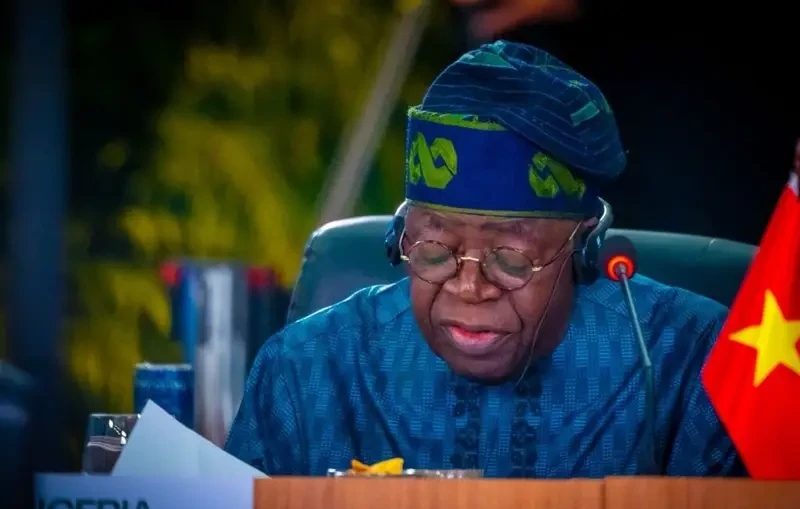President Bola Tinubu of Nigeria has made a fervent call for the reform of global systems to ensure greater inclusion and fairness for Africa and other emerging economies. Speaking at the 17th BRICS Summit in Rio de Janeiro, he emphasized the need for fairer global financial and healthcare structures. This call to action comes as Nigeria solidifies its position as a BRICS partner country, a role it took on in January 2025, joining a group of nations that includes Belarus, Bolivia, Cuba, Kazakhstan, Malaysia, Thailand, Uganda, and Uzbekistan.
At the heart of President Tinubu’s message is the vision for a new global order, one that is built on the principles of fairness, technology transfer, and affordable financing. This, he believes, is crucial for empowering developing nations to reach their full potential. He highlighted the African continent’s proactive steps towards creating a sustainable future, citing initiatives such as the African Carbon Market Initiative and the Great Green Wall. These efforts, according to President Tinubu, demonstrate Africa’s commitment to adopting a strategic approach to achieving a healthy global environment, particularly in the context of the upcoming COP-30.
President Tinubu also underscored Nigeria’s belief in South-South cooperation, emphasizing that the country cannot remain passive in global decision-making processes, especially on issues such as financial restructuring, debt forgiveness, climate change, environmental degradation, and healthcare. He stressed the importance of being proactive, particularly in addressing the needs and concerns of the youth, who make up 70% of Nigeria’s population. This commitment to the future is guided by Nigeria’s long-term vision for 2050 and its nationally determined contribution to global sustainability efforts.
The President further detailed Nigeria’s efforts to accelerate climate action and build environmental resilience. This includes taking bold steps to accelerate the adoption of renewable energy, mainstreaming climate action, promoting nature-based solutions, and strengthening urban resilience. Additionally, Nigeria champions South-South cooperation, aligns with the global renewal framework, and strives to achieve universal health coverage for all. President Tinubu noted that environmental degradation, the climate crisis, and global healthcare inequalities are shared concerns that disproportionately affect Africa, a continent that has contributed the least to global emissions but suffers the most from their impacts.
In his address, President Tinubu also urged BRICS nations to prioritize non-communicable diseases as a core global health concern. He believes that as the world approaches COP-30 and seeks to strengthen the global health system, BRICS should not only serve as a bloc for emerging economies but also as a beacon for emerging solutions and resolutions. These, he suggested, should be rooted in solidarity, self-reliance, sustainability, and a shared vision of prosperity for a common future. President Tinubu reaffirmed Nigeria’s commitment to strategic collaboration aimed at achieving sustainable and inclusive development for all.
Nigeria’s admission as a BRICS partner country, formally announced by Brazil on January 17, marks a significant step in the country’s engagement with the global community. With its large population and strategic economy, Nigeria is poised to drive equitable global progress alongside other BRICS members. The expansion of BRICS to include new full members such as Egypt, Ethiopia, Iran, and the UAE, and the inclusion of Nigeria among nine other partner countries, reflects a broader movement towards global multi-polarity. This development signals a shift towards a more inclusive and diverse global economic and political landscape, one in which emerging economies play a pivotal role in shaping the future.
